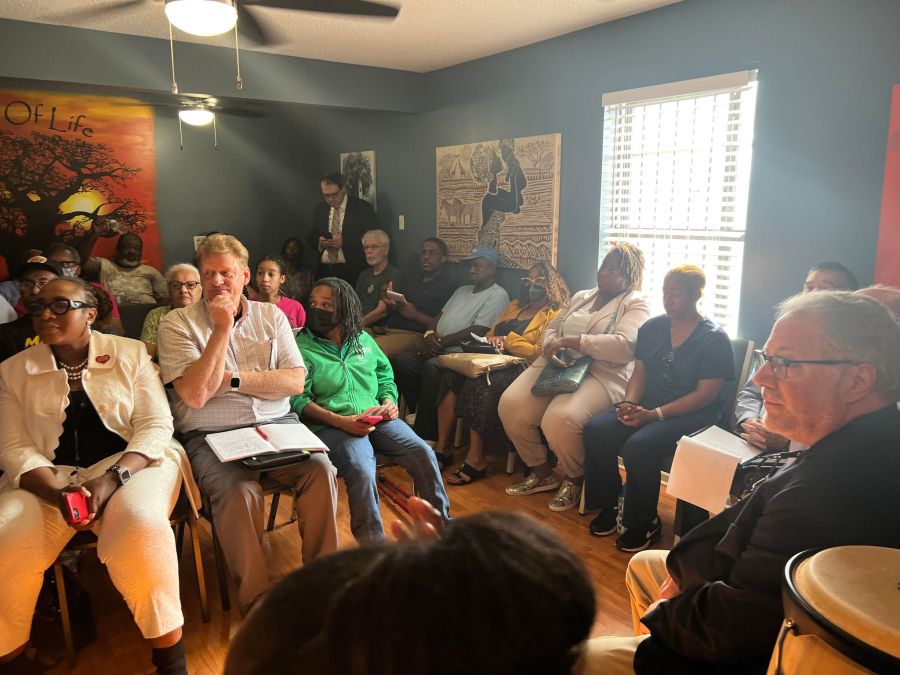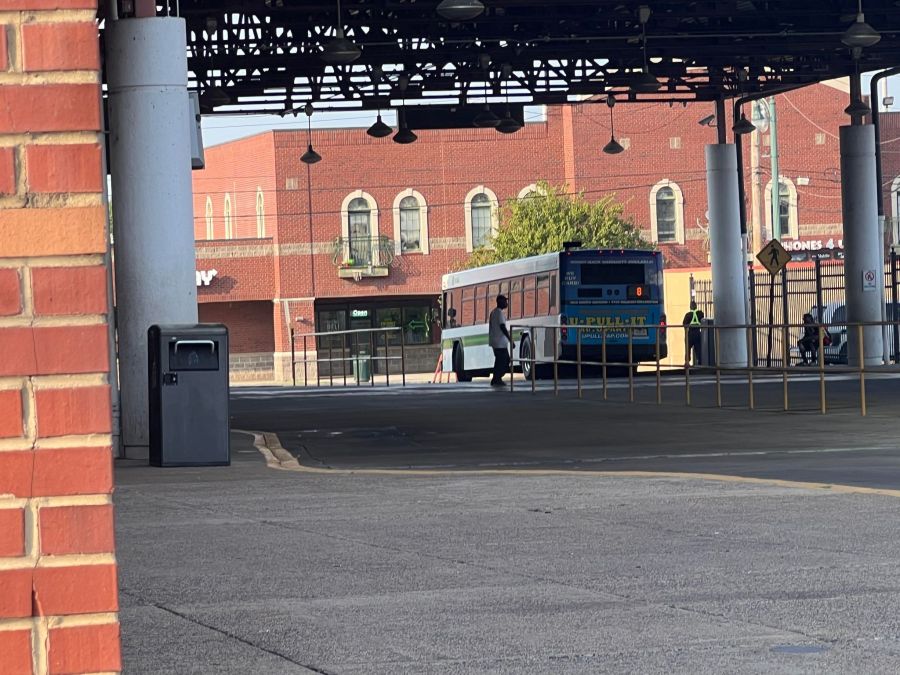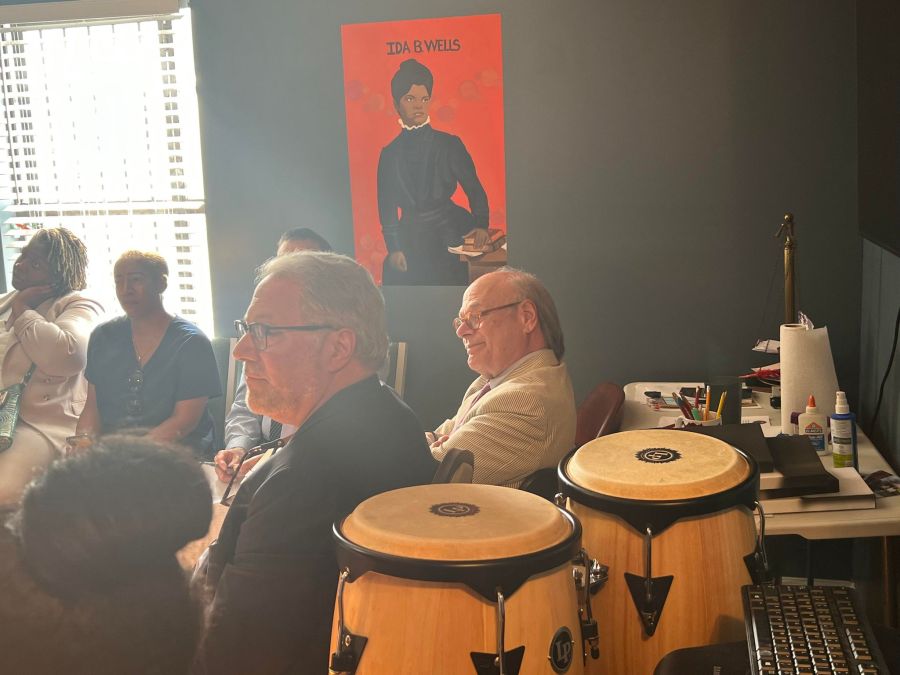MEMPHIS, Tenn. — MATA officials say a shortage of bus drivers, mechanics, and money from the city and county is hurting bus service in Memphis.
MATA CEO Gary Rosenfeld and Congressman Steve Cohen met with disgruntled transit riders in North Memphis Thursday afternoon. The community forum at the Afrikan Heritage and Culture Village of Memphis was organized by Citizens for Better Service and the Memphis Bus Riders Union.

Riders said MATA has reduced routes in underserved neighborhoods, is not posting schedules at bus stops, buses are breaking down, MATA is not providing adequate shelter at bus stops, and they are waiting hours for buses that never show up.
“This rapid transit that goes down Union to the University of Memphis that fills up predominantly white neighborhoods. You have cut service to almost every black neighborhood. Why are you constantly cutting service in black neighborhoods?” said one woman.

Rosenfeld said in the 1970s, MATA ran 300 buses a day, 20 hours a day, but since the seventies, there has been zero increase in local funding. In fact, he said over the last two years, the county has reduced its contribution by $300,000.
“So what did MATA do during all these years? It started in the ’70s to cut a couple of buses here, cut a couple of buses there, cut a few more this year, and a few more buses next year,” he said.
Rosenfeld said MATA now operates 80 buses but is short about 60 drivers and 40 mechanics.
“We have twelve buses currently at vendor shops in Memphis that have been in vendors shops since April 18 because they, too, don’t have adequate staffing to do the work they’ve contracted to do,” Rosenfeld said.
MATA did receive $76 million in federal dollars, but the money only allows for capital improvements. $54 million is being used to build a new maintenance facility, and the rest is for electric buses.
“Why is it for electric buses and diesel-powered buses? Because there is no funding available for diesel-powered buses,” said Rosenfeld.
Rep. Cohen was on hand a year ago when MATA announced the funding for the revitalization project. He said he was concerned to hear customers were waiting hours for buses.
“A lot of people are understandably upset about the services. What the problems are and why they can’t get it straight, I’ll find out for Mr. Rosenfeld,” Cohen said.

Rosenfeld said MATA is holding job fairs to hire more bus operators and has twenty drivers in training. He said the mechanic applicant flow is still flat and all that affects the bus schedule.
The news was little comfort to riders who said they just wanted to be able to get to doctor’s appointments, make it to work on time, and have reliable transportation.


























